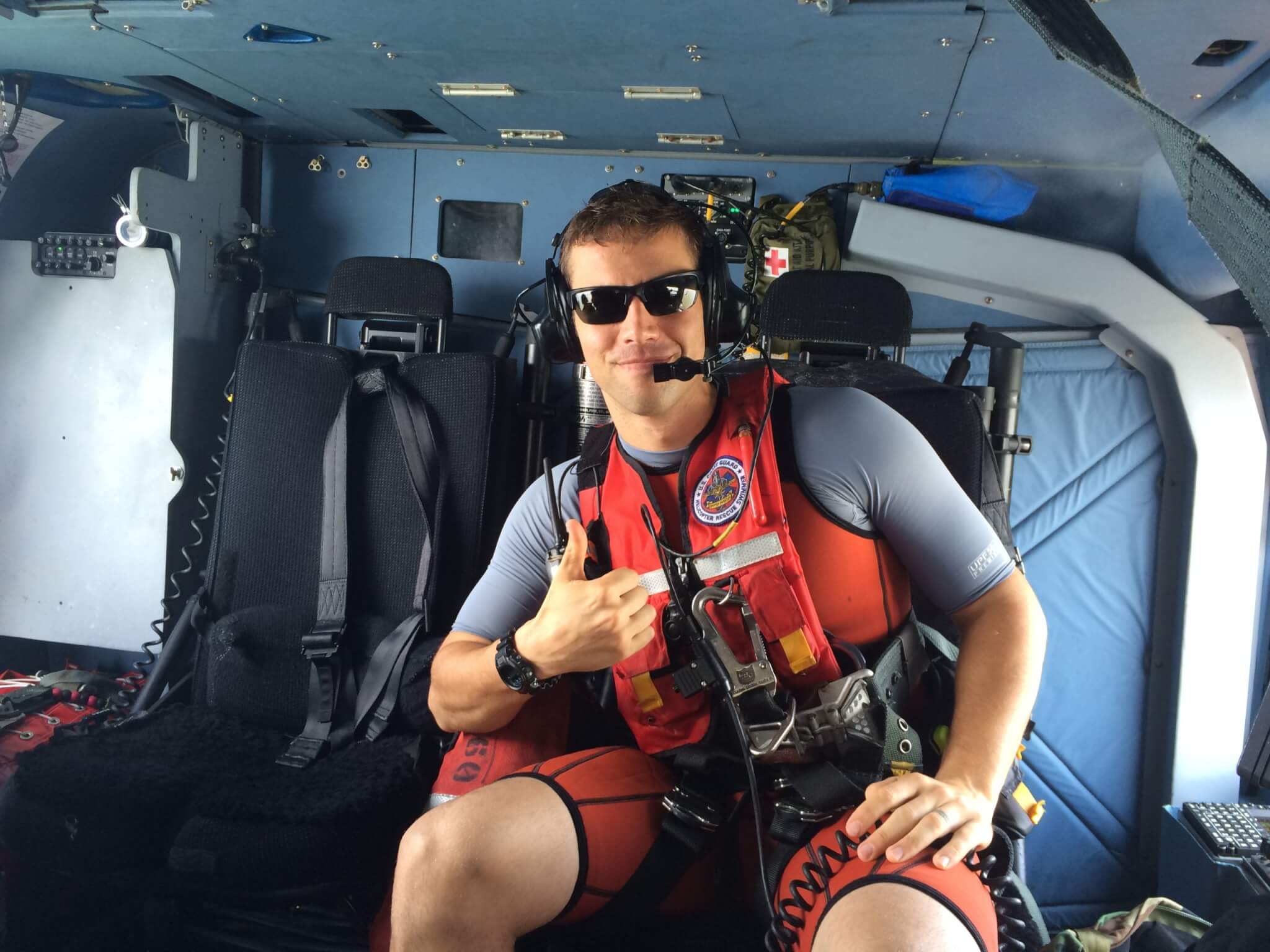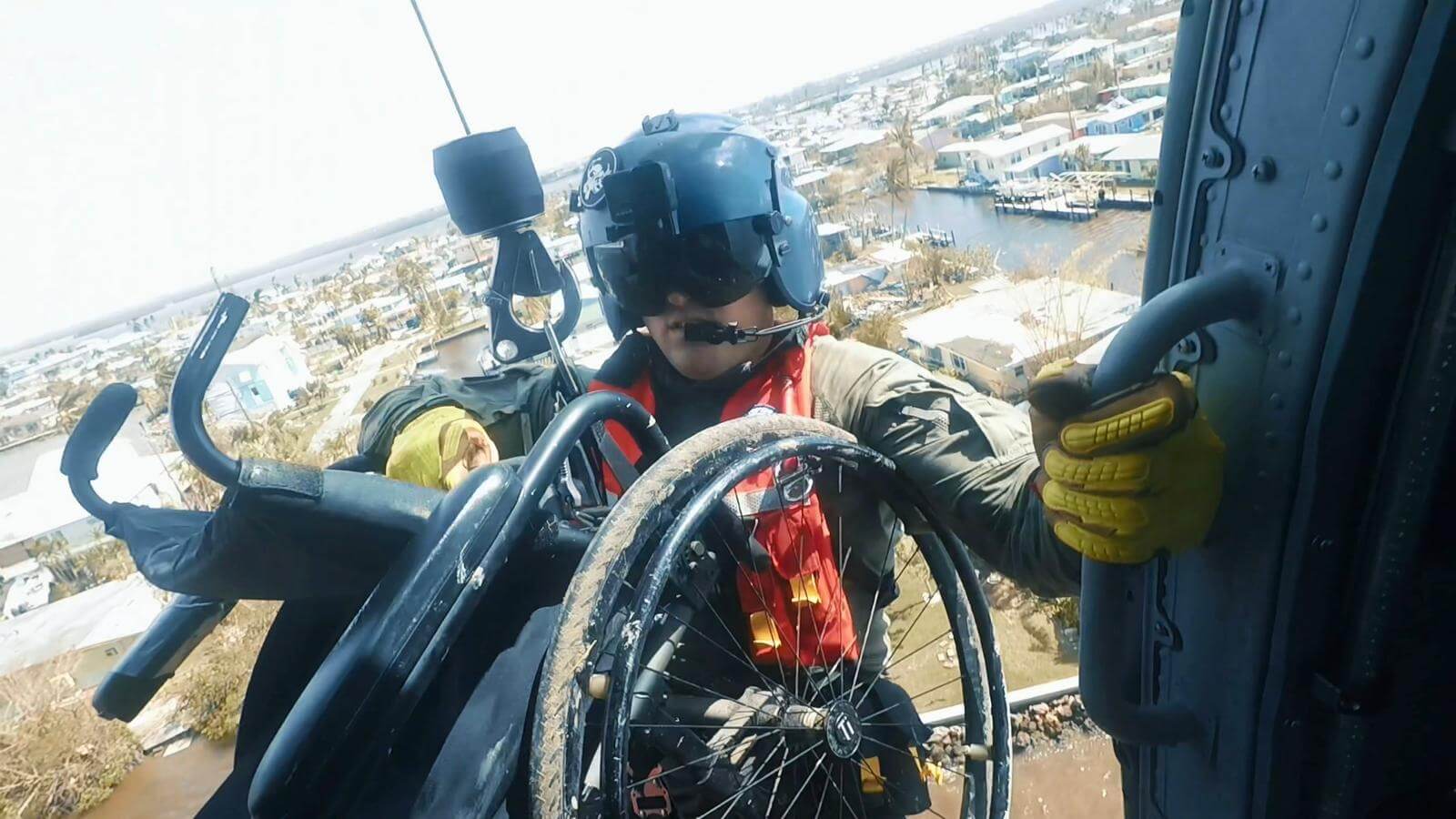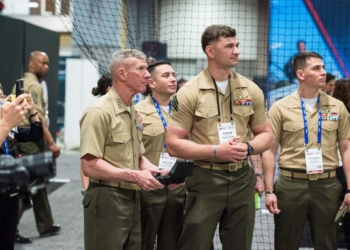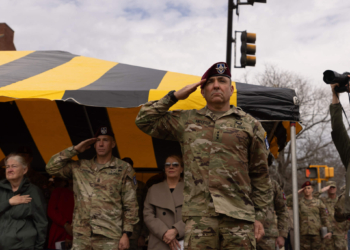Aviation Survival Technician 2nd Class Zach Loesch didn’t always plan on being a rescue swimmer in the Coast Guard. Instead, he hoped to become a Navy SEAL.
After a crazy few days in Florida, however, Loesch has approximately 18 Hurricane Ian survivors who are certainly glad he went with his second option.
“It’s a really crazy feeling to have someone who thinks they’re going to die see you and know you’re the reason they’re not going to die anymore,” he said. “I really love being there for people when they’re at their darkest moments.”
Hero’s recognition
Loesch and his fellow rescue swimmers from Coast Guard Air Station Clearwater did exactly that last week. They headed down on Monday, Sept. 26, 2022, to create a staging area in hurricane-hammered counties before Ian even made landfall. The storm gave them plenty of opportunities to help people, including an older couple trapped in a house.
Lowered down from a helicopter, Loesch eventually kicked through a wall to find the husband and wife. The woman was disabled and uses a specialized wheelchair. The Coastie not only rescued the couple, but went back down for the chair, attaching it to his body as his crew reeled him back up.
“I was just doing the same thing that all my other rescue buddies were doing,” he said. “One of my friends ended up hoisting a pet snake ― I was actually pretty glad that wasn’t my mission.”
Loesch’s bravery, honed through more than 100 previous rescue missions, was rewarded with a phone call from President Biden last week.
“I told him how proud of him I was and thanked him for all the work he and his Coasties are doing to save lives,” Biden announced in a press conference.
Loesch said he felt honored to get a call from the Commander in Chief.
“I don’t feel as though I deserved that call, though, because I was doing the same thing that everyone else was doing,” he said. “I just happened to be the guy who found that lady in a wheelchair.”
Joy amidst the storm

Coast Guard Petty Officer 1st Class Chad Watson, another rescue swimmer from Clearwater, also had his share of dramatic rescues. In one, Watson saw people waving their shirts over their heads. His crew turned the helicopter around and lowered Watson down. An elderly man with medical conditions was inside a collapsed building and needed immediate assistance.
“I was able to make contact with him,” Watson said. “He was in bad shape, so as soon as we hoisted him up, we took him straight to the hospital.”
Watson had performed rescue missions before in Hurricanes Matthew and Dorian. This time, the absolute devastation struck him differently since it was near his home turf.
“It’s always hard to see the people affected that way,” he said. “But it was a little bit harder when it’s so close to home.”
Those emotions often intensify after a rescue. Watson said the reality of what people just survived doesn’t typically sink in until they’re flying away.
“That’s when it really hits them, and they’re like, ‘Oh my goodness, my home, my whole city is destroyed,’” he said. “Some people break down crying or put their face in their hands. It’s tragic.”
Loesch and his crew saw plenty of tragedy during their many hours in the air for Ian. It’s hard entering a house and discovering you’re too late, he confessed.
“One of the scariest parts of this job is walking into a home trying to find someone and finding that they’re not alive,” he said. “There were several on my crew this time around who saw dead bodies.”
Even so, both men love what they do.
“I always put myself in that situation of taking one last look at your home and never seeing it again,” Loesch said. “I just really like helping people in that hard situation.”
Watson agreed.
“When you save a person in a life-or-death situation, the look on their face ― it’s just raw emotion, because they’re extremely grateful,” Watson said. “We don’t do it for the glory or recognition. I feel as though I was meant to do this, and so do all the other guys.”
Read comments






































